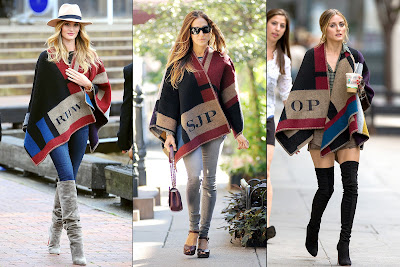Aiming to get the best out of the customization trend, the British brand announced last week the launch of an on-line and in stores "Scarf Bar". The platform allows shoppers to design a classic cashmere scarf, completely personalized to their own specifications, choosing between more than 30 colorways and 30 shades of thread for embroidering initials.
Investing in customization is not news for the company, that just last month quietly closed Burberry Bespoke, a service for creating your own luxury trench coat (with up to 12 million combinations). The Burberry Scarf Bar, a simpler service, reflects a recalibration of the company’s approach to personalisation.
It's easy to guess that monogrammed scarves and ponchos will do well, especially as we approach the Christmas Season, but the tanking of Burberry Bespoke raises questions about the future of customization in Fashion - is it the way forward? Or do costumers shy away from too many choices, as suggested by Barry Schwartz in his famous TED talk The Paradox of Choice?
It is now common place for companies to tailor products to the individual needs of customers (from the average Subway sandwich to luxury cars), but the trend is yet to take off in fashion, particularly at the high end market. Like Burberry Bespoke, a mass customisation platform for designer fashion called Tinker Tailor, launched by Moda Operandi founder Aslaug Magnusdottir, shut its door after less than a year in business.
 |
| Rosie Huntington-Whiteley, Sarah Jessica Parker and Olivia Palermo in Burberry ponchos |
Other challenges include the loss or sacrifice of economies of scale, creating customization interfaces that are easy to use and also enjoyable, and avoiding the clash between what the consumer want and the brand or designer's specific views.
One way or another, I am definitely excited to see what awaits us in the future.













No comments:
Post a Comment